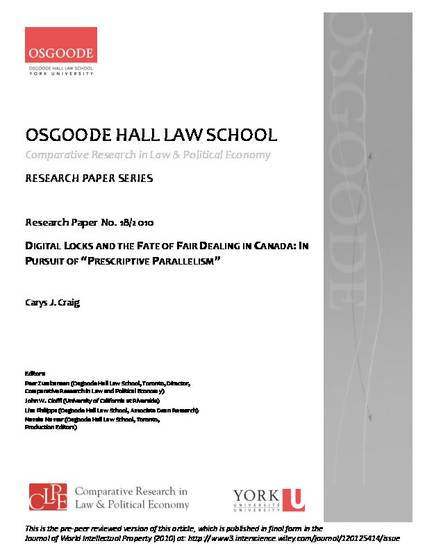
- Anti-Circumvention,
- Canada,
- Copyright,
- Fair Dealing,
- Public Domain
The enactment of anti-circumvention laws in Canada appears imminent and all but inevitable. This article considers the threats posed by technical protection measures and anti-circumvention laws to fair dealing and other lawful uses of protected works, and so to the copyright system more generally. The argument adopts, as its normative starting point, the principle of "prescriptive parallelism" according to which the traditional copyright balance of rights and exceptions should be preserved in the digital environment. Looking to the experiences of other nations, the article explores potential routes towards reconciling technical protection measures with copyright limits, and maintaining a substantive continuity in Canada's copyright balance. It offers some proposals for digital copyright reform that could meet the principled demands of prescriptive parallelism, limit the impact of digital locks on the cultural landscape, and save fair dealing from its impending fate.
Available at: http://works.bepress.com/carys_craig/18/
